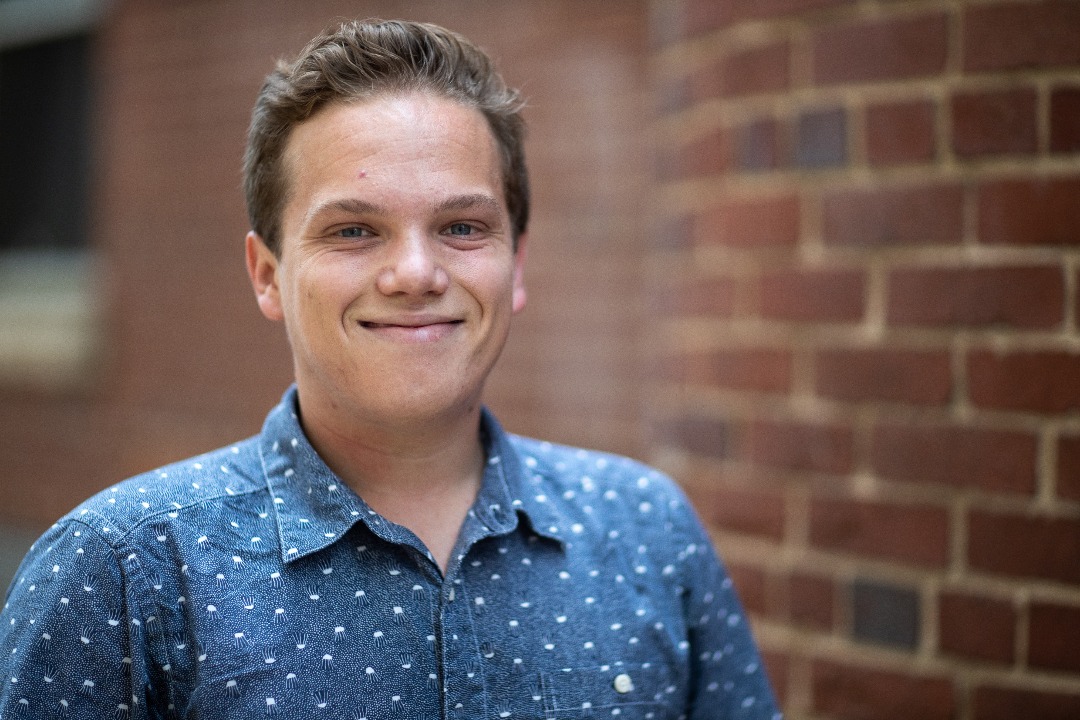By Kristen Mitchell
Gavin Derleth, a rising senior in the Columbian College of Arts and Sciences, is spending his summer studying gentrification in Washington, D.C. He hopes the data he collects will ultimately help cities plan for more equitable futures.
Mr. Derleth is majoring in geography and political science with a minor in geographic systems. He was awarded the Luther Rice Undergraduate Research Fellowship to pursue his research and will present it next spring.
Read more about what Mr. Derleth is looking to discover this summer:
Q: What question are you trying to answer with your research?
A: This research is focused on quantifying and analyzing the impact that gentrification has on the physical space of the neighborhoods it occurs in and the community members who live there. This research will look at one neighborhood which has been gentrified and another which is in the process of gentrifying. Through this research, I hope to shed light on potential ways to mitigate the negative effects of gentrification such as displacement of community members. I also hope to provide examples of the ties which gentrification has to racial and class displacement within Washington, D.C.
Q: What will you be doing this summer to advance your research?
A: I will employ a mixed-methods approach, using both interviews with community based organizations and mapping socio-demographic changes over time using census tract analysis. One of the final products of the project will be the creation of community maps. These maps will depict where community members travel in their neighborhood throughout a given day and take note of things like where they go for health care, for groceries or where their children go to school. These maps will be produced for the “newcomers” in a neighborhood and the long-time community members. This will allow us to see how these two groups utilize the physical space of their neighborhood as it continues to develop. Additionally, it will hopefully highlight some of the spaces and resources which are critical to long-time community members and ought to be protected.
Q: What got you interested in studying gentrification in Washington, D.C.?
A: D.C. is seeing gentrification at a more intense rate for its size than any other city in the U.S. After living here for a few years I have been witness to a lot of this change. As I became more interested in urban geography in my classes, it was no longer something I felt I could ignore, and so I jumped at the chance to research its implications further.
Q: What do you hope to have learned by the end of the summer?
A: By the end of the summer I hope to have a better idea of how cities can plan more equitably going forward. It is economically advantageous for cities to encourage redevelopment and gentrification, and so mitigating the negative effects will be crucial in planning going forward. I hope that the community maps and other analyses created in this project can be used to show which aspects of the physical neighborhood and community must be protected even in the face of economic development.
Q: What is one challenge you’ve faced so far in your work, and how have you tackled it?
A: The biggest challenge thus far has been quantifying gentrification. However, with the help of Professor Elizabeth Chacko and Assistant Professor Brendan Hurley, as well as past scholarship on gentrification, I have been able to come up with something we believe to be an accurate classification of gentrification.
To learn more about available research opportunities contact the GW Center for Undergraduate Fellowships and Research.





